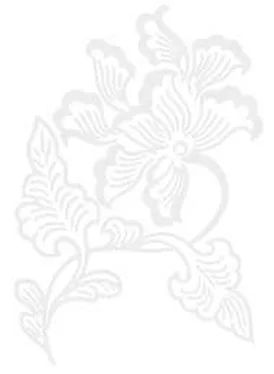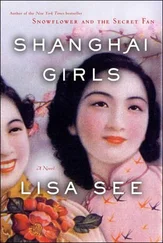Lisa See - Peony in Love
Здесь есть возможность читать онлайн «Lisa See - Peony in Love» весь текст электронной книги совершенно бесплатно (целиком полную версию без сокращений). В некоторых случаях можно слушать аудио, скачать через торрент в формате fb2 и присутствует краткое содержание. Жанр: Старинная литература, на английском языке. Описание произведения, (предисловие) а так же отзывы посетителей доступны на портале библиотеки ЛибКат.
- Название:Peony in Love
- Автор:
- Жанр:
- Год:неизвестен
- ISBN:нет данных
- Рейтинг книги:4 / 5. Голосов: 1
-
Избранное:Добавить в избранное
- Отзывы:
-
Ваша оценка:
- 80
- 1
- 2
- 3
- 4
- 5
Peony in Love: краткое содержание, описание и аннотация
Предлагаем к чтению аннотацию, описание, краткое содержание или предисловие (зависит от того, что написал сам автор книги «Peony in Love»). Если вы не нашли необходимую информацию о книге — напишите в комментариях, мы постараемся отыскать её.
Peony in Love — читать онлайн бесплатно полную книгу (весь текст) целиком
Ниже представлен текст книги, разбитый по страницам. Система сохранения места последней прочитанной страницы, позволяет с удобством читать онлайн бесплатно книгу «Peony in Love», без необходимости каждый раз заново искать на чём Вы остановились. Поставьте закладку, и сможете в любой момент перейти на страницу, на которой закончили чтение.
Интервал:
Закладка:
But I would never forget what had happened. This made me even more determined to find a safe place for my poems. No matter what the future held, I would always be able to come here and relive my sentiments. I forced myself out of bed and went into the corridor. It was early evening and everyone was at dinner. I made my way—and it seemed to take forever to get there as I steadied myself by holding on to the walls, grasping pillars, or clinging to the balustrades—to my father’s library. I pulled out a book no one would ever look at, on the history of dam building in the southern provinces, and tucked my poems between its pages. I put the book back and stared at it to remember the title and its place on the shelf.
When I returned to my room, I picked up my brush for the last time before my marriage. On the outside of my volume of The Peony Pavilion, I painted my interpretation of The Interrupted Dream, the scene where Mengmei and Liniang first meet. My painting showed the two of them before the rockery, just moments before they would disappear into the grotto for clouds and rain. I waited until my ink dried, and then I opened the book and wrote:
When people are alive, they love. When they die, they keep loving. If love ends when a person dies, that is not real love.
I closed the book and called for Shao.
“You saw me when I came into the world,” I said. “Now you see me as I leave for my new home. I can trust no one else.”
Tears ran down Shao’s stern face. “What do you want me to do?”
“You must promise to obey, no matter what Mama or Baba say. They have taken away so much from me, but I have things that must go with me to my new home. Promise you will bring them three days after my marriage.”
I saw hesitation in her eyes. She shivered once, and said, “I promise.”
“Please bring me the shoes I made for Madame Wu.”
Shao left the room. I lay very still, staring at the ceiling, listening to the honking of orphaned geese as they crossed the sky. They made me think of Xiaoqing’s poems and the way she’d invoked that sorrowful sound.
( 8 9 )
Then I remembered the nameless woman who’d written her despair on a wall in Yangzhou. She too had heard the calling of geese. I sighed as I remembered her line, If only my tears of blood could dye red the blossoms of the plum tree. But I will never make it to spring. . . .
A few minutes later, Shao returned with the shoes, still in the silk I’d wrapped them in.
“Put them in a safe place. Don’t let Mama know you have them.”
“Of course, Peony.”
I had not been called by my milk name since my father changed it on the final night of the opera.
“There is one more thing,” I said. I reached under my bedclothes and pulled out my saved copy of The Peony Pavilion.
Shao drew back in alarm.
“This is the most important item in my dowry. Mama and Baba don’t know about it and you must never tell them. Promise!”
“I promise,” she mumbled.
“Keep it safe. Only you can bring it to me. Three days after my marriage. Don’t forget.”
baba returne d f rom his trip to the capital. For the first time in my life he came to visit me in my room. He hesitated by the door, too nervous to approach.
“Daughter,” he said, “your marriage is only five days away. Your mother tells me you refuse to rise and perform your toilette, but you must get up. You don’t want to miss your wedding.”
When I hung my head in resignation, he crossed the room, sat on the bed, and took my hand.
“I pointed your husband out to you on the last night of the opera,” he said. “Were you unhappy with what you saw?”
“I didn’t look,” I answered.
“Oh, Peony, I wish now I’d told you more about him, but you know how your mother is.”
“That’s all right, Baba. I promise to do what’s expected of me. I won’t embarrass you or Mama. I’ll make Wu Ren happy.”
“Wu Ren is a good man,” Baba went on, ignoring what I’d said. “I’ve known him since he was a boy and I have never seen him do anything improper.” He smiled lightly. “Except for one time. That night after the opera he approached me. He gave me something to give you.” Baba shook ( 9 0 )
his head. “I may be master of the Chen family, but your mother has her rules and already she was angry with me about the performance. I didn’t give it to you then. Even I knew it was improper. So I saved what he gave me in a book of poetry. Knowing both of you, I thought that was the right place.”
A gift five months ago or now wouldn’t change how I viewed my future husband or my marriage. I saw duty and responsibility, nothing more.
“And now here we are, just a few days before . . .” Baba shook his head as though he was driving out an unpleasant thought. “I don’t think your mother will mind if I give it to you now.”
He let go of my hand, reached into his tunic, and pulled out something small folded in rice paper. I didn’t have the strength to lift my head off the pillow, but I watched as he unfolded the paper. Inside was a dried peony, which he set in my palm. I stared at it in disbelief.
“Ren is just two years older than you,” Baba said, “but he’s done so much already. He’s a poet.”
“A poet?” I echoed. My mind was having a hard time accepting what I held in my hand, while my ears seemed to be hearing Baba’s words from the bottom of a cave.
“A successful one,” Baba added. “His work has already been published, even though he’s so young. He lives on Wushan Mountain just across the lake. If I hadn’t left for the capital, I would have shown you his home from my library window. But I was gone, and now you are—”
He was talking about my stranger, my poet. The dried flower I held in my hand was the one he’d caressed me with in the Moon-Viewing Pavilion. Everything I had been dreading was wrong. I was going to marry the man I loved. Fate had brought us together. We truly were like two mandarin ducks mated for life.
My body began to shake uncontrollably, and tears streamed from my eyes. Baba lifted me up as though I weighed no more than a leaf and held me in his arms.
“I’m so sorry,” he said, trying to comfort me. “Every girl is afraid to marry out, but I didn’t know how bad it was with you.”
“I’m not crying because I’m sad or scared. Oh, Baba, I am the happiest girl ever.”
He didn’t seem to have heard me, because he said, “You would have been happy with Ren.”
He laid me gently back down on my pillow. I tried to bring the flower up to my nose to see if its scent still lingered, but I was too weak. Baba ( 9 1 )
took the flower and placed it on my chest. It felt as heavy as a stone on my heart.
Tears gathered in Baba’s eyes. How perfect that father and daughter should be united in their happiness.
“I need to tell you something,” he said urgently. “It’s a secret about our family.”
He had already given me the greatest wedding gift possible.
“You know I once had two other younger brothers,” he said.
I was so elated—because Wu Ren was my poet, we were to be married shortly, and we were living a miracle—that it was hard for me to focus on who Baba was talking about. I had seen these uncles’ names in the ancestral hall, but no one ever went to clean their graves at Spring Festival. I’d always supposed they’d died at birth, which was why so little attention was paid to them.
“They were just boys when my father got his posting to Yangzhou,”
Baba went on. “My parents trusted me to take care of this villa and the family in their absence, but they took the youngest boys with them. Your mother and I went to Yangzhou for a visit, but we couldn’t have chosen a worse time. The Manchus came.”
Читать дальшеИнтервал:
Закладка:
Похожие книги на «Peony in Love»
Представляем Вашему вниманию похожие книги на «Peony in Love» списком для выбора. Мы отобрали схожую по названию и смыслу литературу в надежде предоставить читателям больше вариантов отыскать новые, интересные, ещё непрочитанные произведения.
Обсуждение, отзывы о книге «Peony in Love» и просто собственные мнения читателей. Оставьте ваши комментарии, напишите, что Вы думаете о произведении, его смысле или главных героях. Укажите что конкретно понравилось, а что нет, и почему Вы так считаете.












